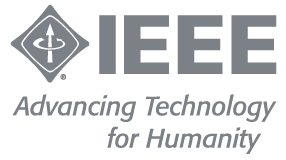
Accelerator programs are rapidly growing all over the world. They represent educational programs designed for entrepreneurs at the initial phase of their startup process. They offer co-working space and focus attention of entrepreneurs on their startup‘s development for short period of time, offering plethora of formally designed lectures, individual mentoring and opportunity to network with potential investors, other entrepreneurs, industry members and others. Due to the short and limited duration - from one week to a few months - they represent very intensive and highly competitive programs.
The central purpose of accelerators is to "accelerate" the development of a venture at the point of launching a product or service and beginning to gain customer traction. Participating in the accelerator programs, entrepreneurs have opportunity to receive initial seed capital and network with potential investors, but also gain human and informational resources. There is an open call for applications, but only the most promising startups (ideas) are chosen and admitted to the programs. Most of them finish with a Demo day when each startup represent itself to a great number of potential investors and to people they worked with during the program.
The first accelerator, YCombinator, was founded by Paul Graham in 2005 in Cambridge, Massachusetts, and soon moved and established itself in Silicon Valley. In the beginning accelerators were very general and they were accepting ventures from different industries. Throughout the time, number of applicants was increasing and in 2011 Paul Graham tweeted that they are receiving applications every minute. The programs have been developed and improved, and now days there are various types of accelerator programs, not only in U.S. but across the globe. They became more specific and clearly defined, targeting startups in specific industry.
Randall Stross, New York Times Digital Domain columnis, wrote an inside story about the YCombinator in his book “The Launch Pad: Inside Y Combinator “ (2012). Describing the selection process, startup development and Demo day, he gave us a chance to “enter” inside of an accelerator and see to what sacrifice entrepreneurs have to be ready for, in order to succeed. It is life changing experience. Of course, now days each accelerator program has its own characteristic, but they all help startups to “accelerate” the development and launching process.
According to data from Crunchbase in 2020 the most successful 5 accelerators based on successful number of exits are:
- Y Combinator (Silicon Valley)
- Techstars (Colorado)
- StartUp Health (NY)
- 500 Startups (Silicon Valley)
- Alchemist (Silicon Valley)
Great contribution for these programs have location. The most successful programs are in the US and 3 out of the 5 programs above are based in Silicon Valley. Being the Bay Area the heart of the Entrepreneurial experience, Startups have an opportunity to grasp ad acquire unique mindset and learn from some of the world's top investors and entrepreneurs. Everything begins in Silicon Valley. This is the place where most of successful Start ups are or have been based, and from where they launched and reached their success.
Apart from these programs lasting weeks or months, there are also intensive accelerators. The TVLP Institute has developed starting in 2014 one of the First Super Immersive technology venture launch program. Re-designed in early 2020 with the inclusion of the Venture Lab and branded Flagship program, the TVLP accelerator is a 3-week program located in Menlo Park a few blocks from Stanford campus and Facebook HQ. It is designed to offer mentoring, co-working and networking opportunities for technological entrepreneurs and innovators selected in more than 42 countries in Europe, middle-East, Asia and Latin America. Access to local capital is through a faculty of venture capitalists and investors.
Silicon Valley is also home of accelerator programs with a regional connection. NewDo is a venture capital fund and accelerator with Chinese roots and offices in San Mateo. It is committed to delivering top-tier financial returns by supporting the world’s best entrepreneurs in becoming conscious leaders and building companies that create value for all stakeholders. The fund offer value-added services to portfolio companies and strong support to connect with Chinese companies for both supply-chain and enter the Chinese market.
Tijana Sekulic

















